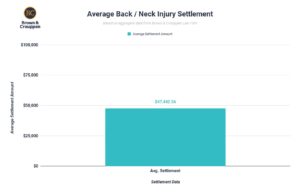About the Statute of Limitations for Wrongful Death in Missouri
In the state of Missouri, wrongful death claims are controlled by state statutes found in Missouri Revised Statute section 537.080. The statute identifies who may bring a cause of action for wrongful death and divides members into classes. Class one is defined as any “spouse or children or the surviving lineal descendants of any deceased children, natural or adopted, legitimate or illegitimate, or by the father or mother of the deceased, natural or adoptive.”
- If there are no class one members, the next group who can bring a wrongful death claim are called class two members, defined as “brother or sister of the deceased, or their descendants,” who can establish his or her right to damages. If the class members are minors (younger than 18 years of age) or incapacitated, the statute allows the court to appoint a “plaintiff ad litem” to prosecute the wrongful death claim on their behalf. If there are no class one or two members, including no class one or two minors or incapacitated individuals, then no cause of action for wrongful death survives the death.
- Missouri Courts have made it clear that the decedent’s estate is not a “person entitled to share in the proceeds of such action” under the wrongful death statute. Accordingly, if you do not specifically fall under class one or two of the statute, you are not authorized to bring a wrongful death claim in Missouri. However, in those cases, it may still be possible to have the probate court open a probate estate and have a personal representative appointed to bring a survival action or lost change of recovery case on behalf of the decedent, if applicable. The probate estate must open within one year from the death date, so time is of the essence.
- Also, if you are a class two-member as defined by the statute, but there is also a class one member, you are not authorized to bring a wrongful death claim, even if no class one members want to get the claim, and you are not entitled to share in the judgment or settlement.
Eligibility for Filing a Wrongful Death Claim
When determining who can bring a wrongful death claim in Missouri, we first look to see if there is a surviving spouse, children, or grandchildren, along with the decedent’s surviving parents. When the claim involves the death of a minor or viable fetus, the parents are most often the individuals who are entitled to bring the claim. [ See,O’Grady v. Brown, 654 S.W.2d 904 (Mo. banc 1983)]
If multiple class members are eligible to file a wrongful death claim, any one of the class members may file the claim, with or without permission from the others. Additionally, a wrongful death claim must be proven in order to be successful. At the end of the lawsuit or claim, a court will determine how funds are allocated among the class members. The court must approve any compromise or settlement of the wrongful death claim. The person bringing the claim must satisfy the court that a diligent attempt to notify all parties having a cause of action to bring a wrongful death claim. Any person who falls in the appropriate class may join in the lawsuit and must give notice of the judgment or settlement. The court is responsible for allocating the settlement funds in proportion to the losses suffered by each person or party entitled to share in the proceeds.
It should be noted that living together and owning property together alone does not qualify you as a class member. Therefore, you may not be entitled to bring a wrongful death claim in Missouri. Also, even though your significant other has not seen his/her child since you two have been together, the child is a class one member and, therefore, is entitled to bring a wrongful death claim. While this might not seem fair, the courts must follow the strict reading of the applicable statutes.
DAMAGES IN A MISSOURI WRONGFUL DEATH CASE
The following is a list of some of the damages you can recover in a wrongful death case:
- Funeral and burial expenses.
- Medical bills related to the deceased person’s final injury or illness.
- The value of wages and benefits the deceased would likely have earned if he or she had lived.
- Pain and suffering experienced by the deceased just before the death.
- The reasonable value of the services, consortium, companionship, comfort, instructions, guidance, counsel, training, and support the deceased person provided to the surviving family members.
However, damages for “grief and bereavement because of death” are not allowed in Missouri. It’s worth noting that the state of Missouri does not have a damage cap for wrongful death, meaning that there is no limit to how much compensation can be recovered unless it’s a medical malpractice case.


Were you injured in an accident due to someone else’s negligence? Get legal help from the most effective injury law firm in the Midwest.





